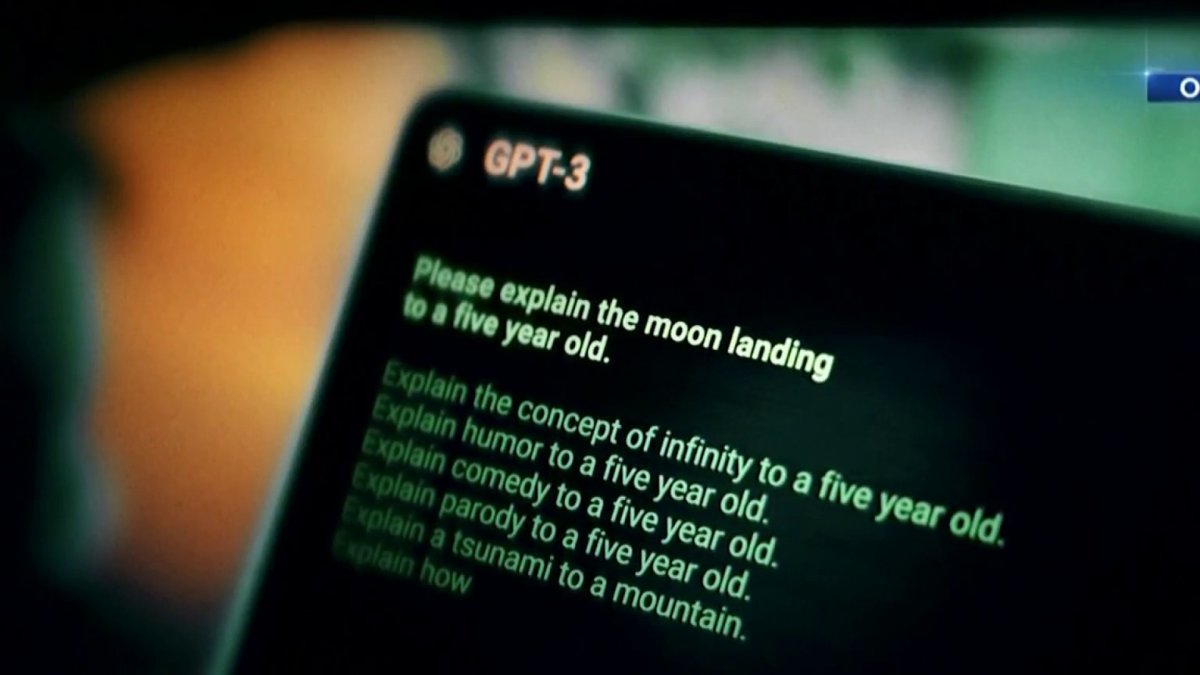
Chatbot technology can be used to write homework assignments and essays. Educators say banning it outright can be difficult, but they have concerns.
A chatbot that can mimic human writing, created by an artificial intelligence company, is raising questions about the impact the technology could have in classrooms.
In New York City, the largest school district in the country is prohibiting its use on school computers.
"At first, when I saw at first glance that it could produce a sort of crude student paper within just a couple of seconds, I was alarmed," said Robert Comeau, a 12th-grade English and AP Literature teacher at O'Bryant School of Math & Science in Boston's Roxbury neighborhood. "The closer I read, I began to calm down and I saw that the product wasn't very good."
To test out its essay-writing capability, we copied and pasted a prompt for a 500 word high school essay about the right of schools to search students' lockers and backpacks for drugs and weapons into the program.
Get Boston local news, weather forecasts, lifestyle and entertainment stories to your inbox. Sign up for NBC Boston’s newsletters.
It produced an eight-paragraph essay including the following statement: "Personally, I believe that targeted searches of student lockers and backpacks can be an appropriate measure in certain circumstances, but that they should be conducted with care and respect for students' rights and privacy. The key to this issue is finding a balance between the need for school safety and the need to protect students' rights and privacy."
See the full AI-penned essay at the bottom of this page.
UMass Education Professor Janna Kellinger read the essay and said the writing is lacking.
Local
In-depth news coverage of the Greater Boston Area.
"If a student handed this in, it doesn't have like an originality to it," she said. "I noticed that it does a lot of regurgitation of the original prompt, but there's no personality to it, no voice to it."
She said trying to ban this kind of technology in schools is futile.
"More and more chatbots like this are going to be developed that are going to get even better," said Kellinger. "What is more useful is to talk about the ethics behind it — why it's unethical to pass off somewhat computer-generated text as your own."
Comeau said he has received work from a student who used an AI-assisted paraphrasing tool. His concern is that these types of shortcuts could be a sign of a larger issue.
"Some students, when they present artificial work, it's sort of a red flag for what's going wrong, and in that student's skill set or home life or whatever is keeping that kid from doing the authentic learning," he said. "I've seen that students can do amazing work, and they can really, given the right circumstances and pedagogy, produce amazing work far better than a computer."
Some educators are looking at ways to incorporate this technology in their lesson plans.
"Some are using these AI tools like ChatGPT to help kids understand what it means to fact-check," said David Meyers, executive director and founder of Teachers Connect, an online community and workforce development organization for schoolteachers.
He compares the program to a calculator.
"We figured out how to how to still teach math, how to still run a thoughtful math discussion, involving calculators, without prohibiting the use of calculators," he said. "These are roads we've gone down before. This is an impressive leap. You know, there's no question it's formidable. It's intimidating. It's vexing. And we we've got to figure out the best ways to turn into our advantage."
Kellinger said it could help supplement the writing process.
"If you're writing a persuasive essay, you might want to put the opposite into ChatGPT to see what the opposite side would argue so that you can think of the counterarguments," suggested Kellinger. "But clearly, there needs to be rules in school about not using computer-generated text and trying to pass it off as your own. The rule isn't different from in the past, right? The rule is only take credit for your own original work."